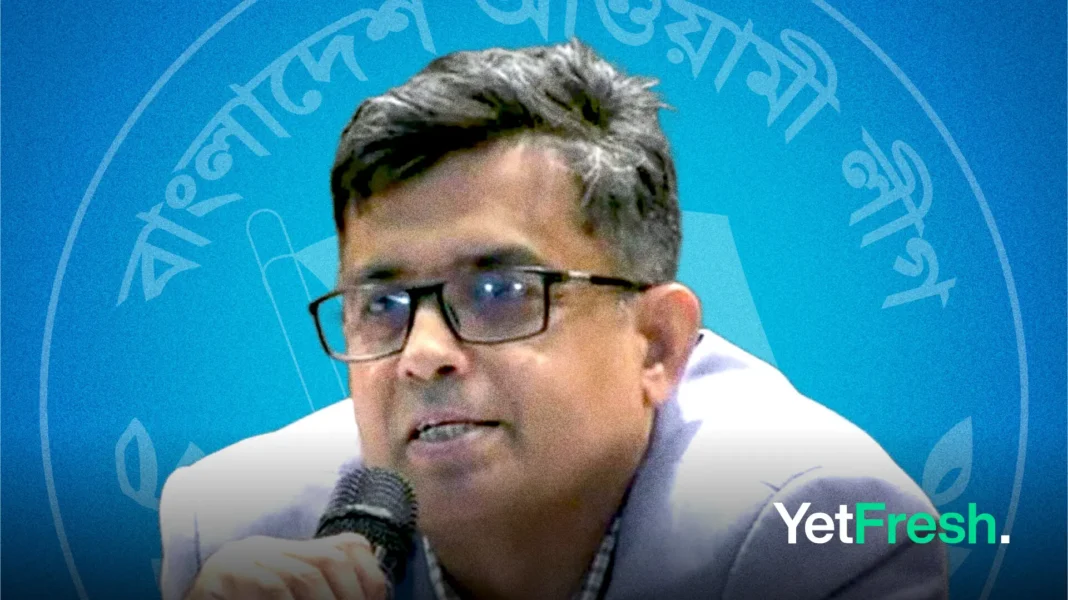Summary:
- The interim government of Bangladesh has no plans to ban the Awami League, leaving such decisions to political consensus.
- Individuals within the Awami League involved in criminal activities will face justice under the current administration.
- Economic instability is attributed to misleading data from the previous Awami League government, causing challenges in market control.
- Electoral and institutional reforms are underway, with election dates dependent on the progress of these reforms.
The interim government of Bangladesh has dismissed rumors regarding a potential ban on the Awami League (AL), one of the country’s major political parties. Shafiqul Alam, Press Secretary to the Chief Adviser, clarified today that there is no intention to dissolve the party. Speaking to journalists after the first day of a training workshop organized by the Bangladesh Agricultural Journalists Forum (BAJF), Alam emphasized that decisions about banning political parties would be left to political consensus rather than unilateral government action.
“The interim government has no plans to ban the Awami League. Such decisions will be made collectively by political parties,” Alam stated. However, he underscored that individuals within the party involved in criminal activities would face justice. “Those with blood on their hands will be held accountable,” he added.
The interim government, led by Nobel laureate Muhammad Yunus, assumed power following mass protests that ousted former Prime Minister Sheikh Hasina in August 2024. Since then, the administration has prioritized reforms and accountability while navigating a politically charged environment. Reforming institutions and preparing for credible elections remain central to its agenda.
Alam also addressed ongoing discussions about electoral and institutional reforms. He noted that the government is working closely with political parties to finalize recommendations from reform commissions. These reforms are expected to shape the timeline for national elections, which could take place as early as late 2025 or early 2026, depending on their completion.
“The election date will depend on how much reform is achieved,” Alam explained. He also highlighted the importance of these reforms in ensuring a transparent electoral process and restoring public trust in governance.
The interim government has faced significant challenges in stabilizing the economy and controlling market prices, particularly for essential commodities. Alam criticized the previous Awami League administration for providing misleading information about agricultural production, which he claimed contributed to current market instability. “The Awami League misled the nation for years, claiming increased production while the reality was different,” he said.
Efforts are underway to regulate market syndicates and address price hikes. Alam acknowledged that lower potato production this year has driven up prices, despite earlier claims of surplus production by the previous government.
Accountability remains a cornerstone of the interim government’s agenda. The administration has prioritized investigations into alleged crimes committed during Sheikh Hasina’s tenure, including corruption and human rights violations. Alam reiterated that justice would be served for those responsible for past atrocities.
As Bangladesh prepares for its next chapter, uncertainty looms over the Awami League’s role in future elections. While some political factions have called for banning the party due to its controversial legacy, others argue that excluding it entirely could undermine democratic principles.
The interim government’s focus on reforms and accountability aims to pave the way for a fair electoral process and long-term stability. However, achieving consensus among political parties remains a critical challenge as the nation moves toward rebuilding trust in its democratic institutions.




